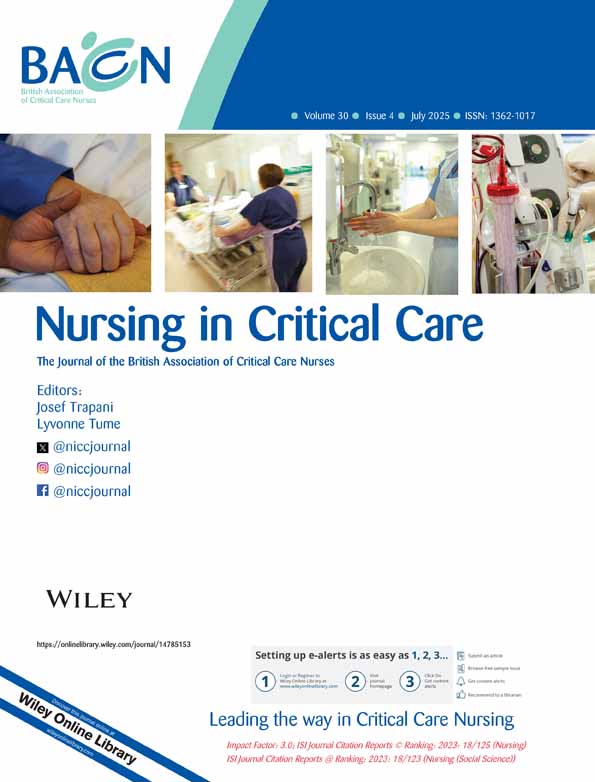‘We Had to Be Strong for Him’: A Cultural Lens on Family Resilience During Critical Illness of Older People's Families in the Middle East
Funding: This work was Funded by the Deanship of Scientific Research at King Faisal University, Saudi Arabia (Grant: KFU251979).
ABSTRACT
Background
Understanding family resilience during critical illness, especially in culturally specific contexts like the Middle East, is crucial to humanizing intensive care practices and fostering culturally responsive care. However, there is limited empirical research on how families in this region experience and construct resilience while caring for older relatives in intensive care units (ICUs).
Aim
To explore the lived experiences of family resilience among relatives caring for older adults during critical illness within ICUs in the Middle East and to identify culturally embedded coping strategies.
Study Design
A qualitative phenomenological study was conducted using semi-structured, in-depth interviews with 16 family caregivers recruited from ICU settings in Al-Ahsa, Saudi Arabia. Thematic analysis was used to interpret the data. This study adhered to the Standards for Reporting Qualitative Research (SRQR) guidelines to ensure comprehensive and transparent reporting.
Results
Three main themes emerged: (1) Emotional challenges and cultural expectations, highlighting emotional distress shaped by expectations of strength and stoicism; (2) Collective family resilience, illustrating shared caregiving roles, emotional co-regulation and intergenerational support; and (3) Spirituality and faith as sources of strength, capturing the central role of religious practices such as prayer, tawakkul and viewing illness as a divine test.
Conclusions
This study provides culturally nuanced insights into how Middle Eastern families navigate emotional, relational and spiritual challenges during the critical illness of older relatives. Resilience was expressed collectively and deeply rooted in faith, cultural obligation and family solidarity.
Relevance to Clinical Practice
Critical care nurses and health care providers can enhance family-centred care by recognizing culturally specific resilience strategies and integrating spiritual and collective caregiving practices into support programmes. This culturally informed approach can improve emotional outcomes and resilience among families in ICU settings. Critical care nurses can support Middle Eastern families by incorporating culturally informed strategies such as facilitating spiritual practices (e.g., prayer spaces), acknowledging collective caregiving roles during communication and providing emotional support that aligns with gender and familial hierarchies.
Conflicts of Interest
The authors declare no conflicts of interest.
Open Research
Data Availability Statement
The datasets generated and analysed during the current study are available from the corresponding author upon reasonable request.




